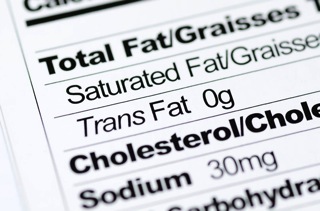
Now even the U.S. Government is on board with what health specialists have known all along: partially hydrogenated oils and the industrial trans fats they contain are not safe for human consumption.
The FDA already requires food manufacturers to list the amount of trans fats in their products. It also removed trans fats from the category of Generally Recognized as Safe (GRAS).
However, now the FDA is working to remove partially hydrogenated oils from the food supply.
Food manufacturers have three years to phase them out of use, which should make boxed, packaged, and restaurant foods safer by June of 2018.
FDA banning trans fats to protect heart health
The FDA cites heart disease risks for banning trans fats. Trans fats contribute to a build up of plaque in arteries and increase the risk of heart disease. The FDA says removing trans fats from the food supply will prevent thousands of fatal heart attacks each year.
Trans fats also shrink the brain
Partially hydrogenated oils also shrink the brain and increase the risk of dementia. One study found that even very small amounts of trans fats damage the brain.
This is important to know because manufacturers are not required to list trans fats on the nutrition label if they contain less than 0.5 grams of trans fat per serving. If you see partially hydrogenated oil listed in the ingredients, then avoid that food (even if the nutrition label says 0 grams trans fat).
Hydrogenated oils are closer in structure to plastic than food and damage the brain in more than one way. They deprive the brain of oxygen by clogging arteries that bring blood to the brain.
They also become part of brain cell membranes. Cell membranes, which are comprised of fats, communicate with other cells and determine what enters and exits the cell. When hydrogenated oils in the diet become part of cell membranes, this makes them more rigid and less functional. The sheaths that insulate and protect neurons also incorporate trans fats.
This process also replaces the vital brain fats DHA and essential omega-3 fatty acid. As a result, cellular communication suffers, brain tissue degenerates, and disorders such as poor mental performance, mood disorders, memory loss, or health problems can arise.
Avoiding trans fats
Always read ingredient labels and ask food servers what type of oil is used for frying. Here are foods that commonly contain hydrogenated oils:
- Crackers, cookies, cakes, frozen pies and other baked goods
- Snack foods (such as some microwave popcorn)
- Stick margarines
- Coffee creamers
- Refrigerated dough products (such as biscuits and cinnamon rolls)
- Ready-to-use frostings
- Brain-friendly diet
Ditch trans fats and go for a brain-friendly diet that includes leafy green vegetables, seafood, eggs, olive oil, nuts, avocados, colorful fruits, nuts, and meats. To learn more about ways to eat for healthier brain function, check out the leaky gut/autoimmune diet and ask my office for information.



Latest from the Blog
The Death of Red Dye #3
January 15, 2025What Is Red Dye No. 3? Red Dye No. 3, or Erythrosine, is a synthetic food color derived from coal tar. It was first approved by the FDA in the 1950s and quickly became one of the most popular artificial colors in food and cosmetics. Red Dye No. 3 was used in everything from candies, […] Read more
Latest from the Blog
Do You Know What Is In Your Protein Powder?
What’s Really in Your Protein Powder? Understanding the Risks Protein powders are a staple in many health-conscious diets, from athletes seeking muscle recovery to those simply aiming to boost their daily protein intake. With a wide variety of options available, choosing the right one can feel overwhelming. However, recent findings have raised concerns about what’s […] Read more